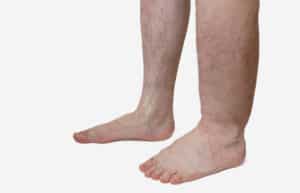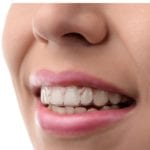Migraines are debilitating. And they can get to a point where there’s hardly anything you wouldn’t do to get relief.
Unfortunately, there is no magic pill that will cure every migraine for every person.
There is some good news, however. There are a number of treatments available to help those who suffer from migraines.
The trick is finding the migraine treatments (or combination of treatments) that will work best for you. In this brief guide, we list a number of the most common and effective treatments available.
The hope is that it will give you some ideas to try and/or at least discuss with your doctor. And, by doing so, find the migraine treatment(s) that will get you the relief you so desperately want.
Medications for Migraine Relief
We’re going to break the medications used for migraines up into two categories. The first category is medications used to provide pain relief if you’re already suffering from a migraine.
The most common ones here are:
- Over the counter pain relievers – these include aspirin and ibuprofen. They also include pain relievers like Excedrin Migraine which combine acetaminophen, aspirin and caffeine.
- Triptans – these are prescriptions drugs that include rizatriptan and sumatriptan.
- Opioids – especially those that contain codeine.
- Dihdroergotamines – these come in a nasal spray or through injection.
- Ubrogepant – these help with light/sound sensitivity as well as pain.
- Lasmiditan – another class of meds that helps with light/sound sensitivity as well as nausea and pain.
The second type of meds are ones that are for the prevention of migraines. The most common types of these are:
- Botox
- Anti-depressants
- Anti-seizure drugs
- Blood pressure meds
- CGRP Inhibitors
Migraine Treatments That Don’t Involve Medication
Medication doesn’t work for everyone. And there are many people who like to avoid taking meds whenever possible. If they can get relief without dealing with the potential side effects of meds, they are all for it.
Below are a number of common treatments for migraines that don’t involve medication.
- Mindfulness practice
- Osteopathy treatments
- Counseling – particularly acceptance and commitment therapy (ACT)
- Supplements
- CBD Oil
- Dry-needling
- Cefaly -an electrical stimulation device worn like a headband
What Causes Migraines?
Part of finding the right treatment for your migraine(s) comes down to understanding what is causing them. Unfortunately there is no clear cut cause for migraines. Researchers are still trying to get to the bottom of this.
However, we do know about a number of triggers that bring on migraines in people. Some of them include:
- Medications
- Foods and food additives
- Too much alcohol
- Too much caffeine
- Stress and anxiety
- Hormonal changes in women
- Changes in sleep patters
- Sensory stimulation (ie. loud noises, bright lights, strong smells)
- Changes in the weather
Knowing what triggers your migraines can be very helpful in preventing and even treating them. Keeping a journal can be a big help here.
More on Migraines
We have a number of articles on our site that dig deeper into migraine treatments and causes.
You can learn about treatment options including CDB, Botox, osteopathy and dry needling.
If you suffer from ocular migraines, you can find out about the role anxiety plays in them, prevention, triggers and if new glasses can cause them.
Many people end up in the ER due to migraines. Learn when to go to the ER and what treatments they can provide there.
Many people also wonder if there is a link between wisdom teeth and migraines. You can learn about that here.
And, lastly, migraines can also interfere with your job. Find out if you can get disability for migraines in this article.








